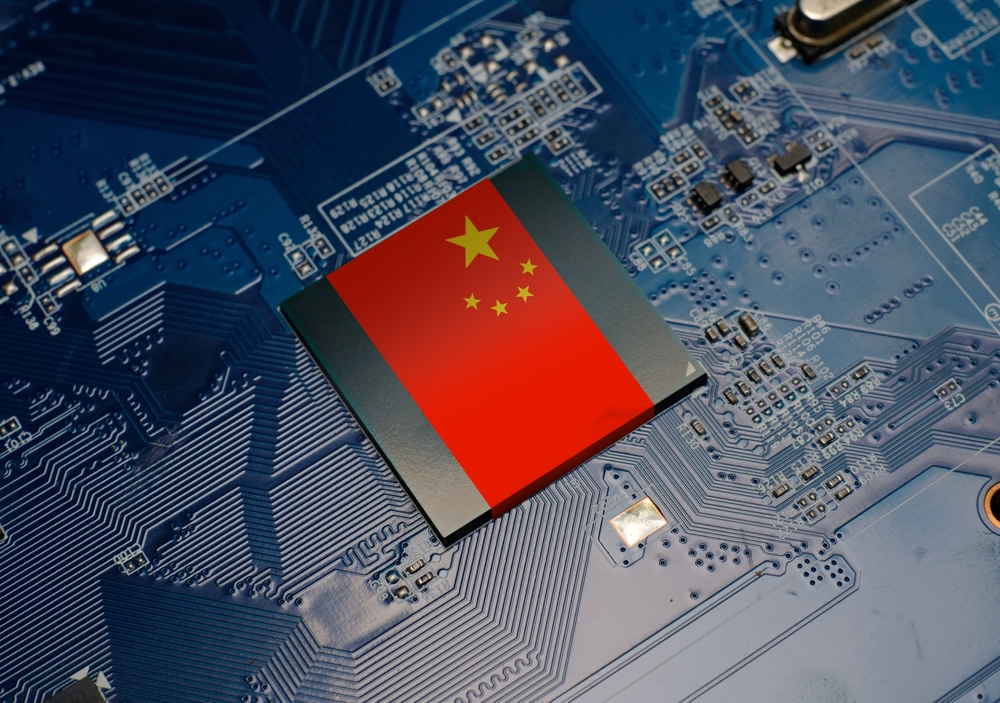China pours more money into Big Fund III: $47.5 billion and counting
More money for China's fab tools industry.

China has launched its third government-backed fund — the so-called Big Fund III — to support the semiconductor industry, registering a capital of 344 billion yuan ($47.5 billion), reports Reuters. The third installment of the Big Fund was originally designed to raise $27 billion, but as it turns out it raised $20.5 billion more as China is seeking to achieve self-sufficiency in the semiconductor sector, especially in the wake of U.S. export restrictions aimed at limiting China's access to advanced technology for potential military use.
One of the primary focuses of the third phase is to boost domestic development and production of equipment for chip manufacturing, a critical area for advancing China's semiconductor capabilities as companies like ASML, Applied Materials, and Tokyo Electron can no longer supply their most advanced tools to China due to export restrictions.
The fund, known as the China Integrated Circuit Industry Investment Fund or Big Fund, established its third phase on May 24. In its inception phase, the Big Fund III is the largest of the three phases and is registered under the Beijing Municipal Administration for Market Regulation. This move has already positively impacted the market, with the CES CN Semiconductor Index rising by over 3%, marking its biggest one-day gain in more than a month, according to Reuters.
China's Ministry of Finance is the largest stakeholder in the fund, holding a 17% share and contributing 60 billion yuan in capital. The China Development Bank Capital follows with a 10.5% share. Additionally, five major Chinese banks, including the Industrial and Commercial Bank of China, China Construction Bank, Agricultural Bank of China, Bank of China, and Bank of Communications, are also significant investors, each contributing about 6% of the total capital.
Since its commencement in 2014, the Big Fund (2014-2018, approximately $100 billion) and the Big Fund II (2019-2023, approximately $41 billion) have collectively raised hundreds of billions of dollars and invested in numerous microelectronics companies. Meanwhile, according to a Bloomberg report, the assets managed by the Big Fund are currently valued at around $45 billion. This valuation may be influenced by U.S. sanctions against China's semiconductor sector, which have significantly impacted major companies such as Semiconductor Manufacturing International Corporation (SMIC) and Yangtze Memory Technologies Co. (YMTC), China's leading 3D NAND manufacturer.
To efficiently manage the Big Fund III, the government plans to hire at least two institutions for investment management.
Get Tom's Hardware's best news and in-depth reviews, straight to your inbox.

Anton Shilov is a contributing writer at Tom’s Hardware. Over the past couple of decades, he has covered everything from CPUs and GPUs to supercomputers and from modern process technologies and latest fab tools to high-tech industry trends.
-
ThomasKinsley The funds are, in itself, inconsequential, but since China has the means to produce sophisticated hardware and software, they are on track to reaching self-sustainability within 10 years.Reply -
gg83 Reply
That would only happen if every other country stopped innovating now, and literally sat on their hands.ThomasKinsley said:The funds are, in itself, inconsequential, but since China has the means to produce sophisticated hardware and software, they are on track to reaching self-sustainability within 10 years. -
ThomasKinsley Reply
Even if China is still behind in the latest innovations 10 years from now, they can still be fully self-sustaining in the tech sector and become quite the force in the global market. Even now China is prepping multiple foundries to release a deluge of chips. This effort should not be discounted because it gives China further leverage and time to work on perfecting the most advanced processes.gg83 said:That would only happen if every other country stopped innovating now, and literally sat on their hands.